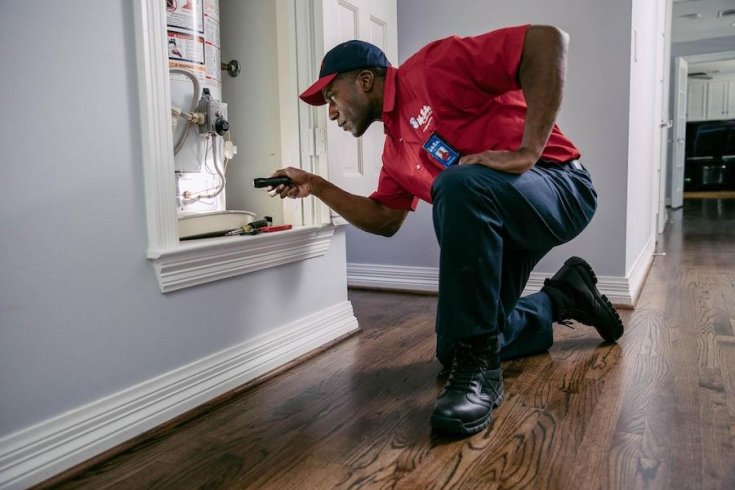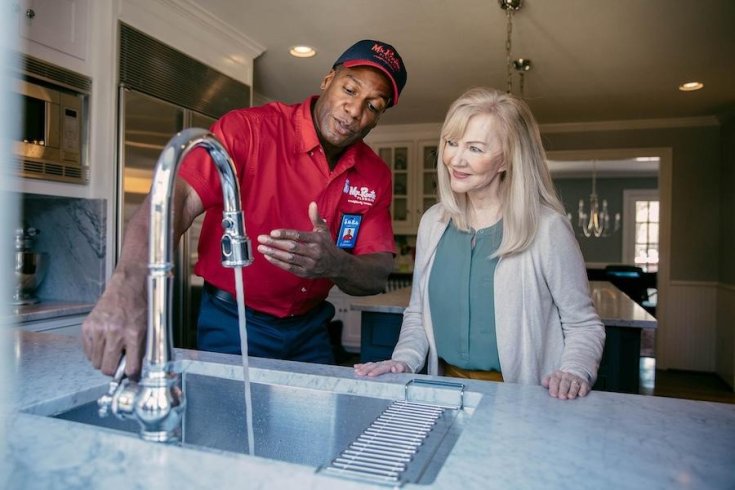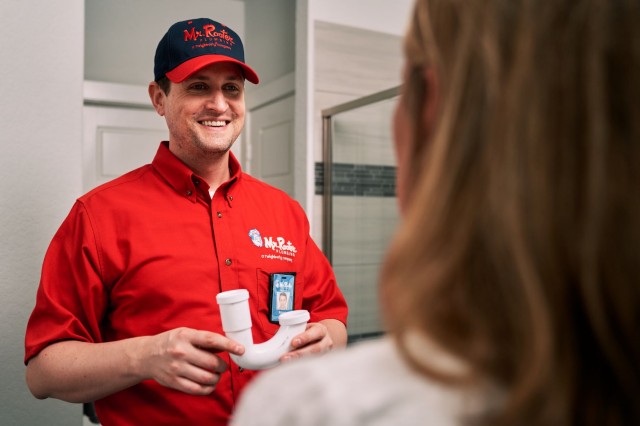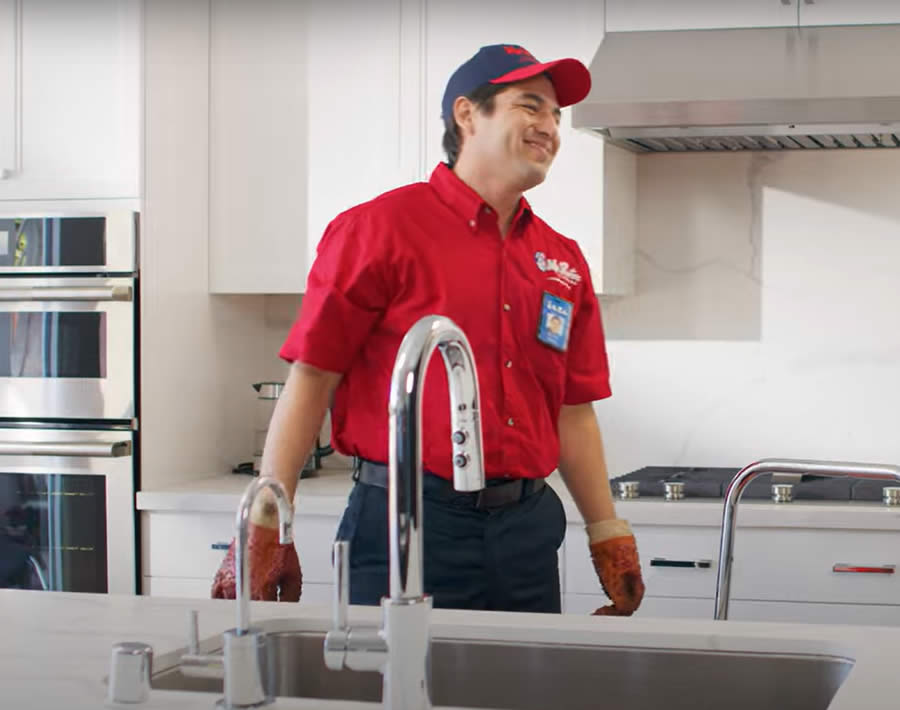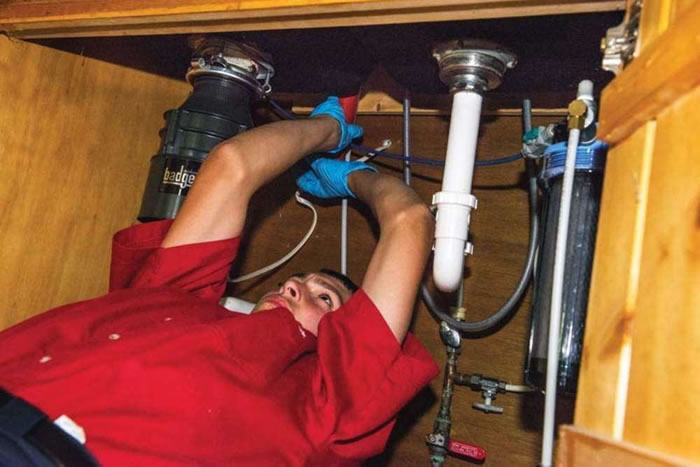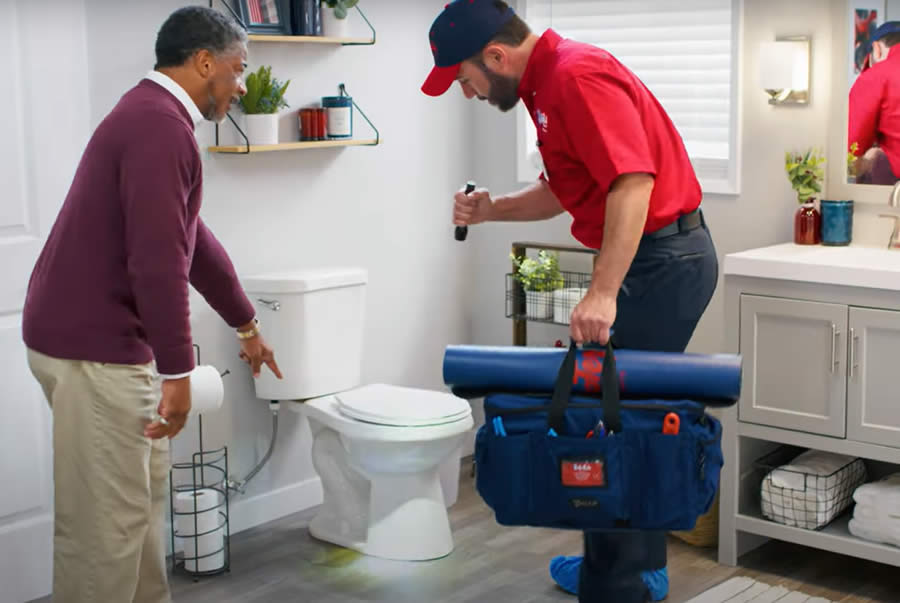A water heater is essential to your home, providing hot water for showers, cleaning, and more. A critical component of your water heater is the pressure relief valve. This valve is designed to release excess pressure and prevent your water heater from becoming dangerous. If the pressure inside gets too high, it could cause severe damage to the unit and possibly even lead to a burst. To prevent such problems, knowing how to open your water heater pressure relief valve safely is essential. Mr. Rooter Plumbing walks you through the process so you can ensure your water heater is functioning correctly.
What is a Pressure Relief Valve?
The pressure relief valve, often near the top or side of your water heater, is a small but critical safety feature. It aims to release pressure if it builds up too high inside the tank. The excess pressure could lead to dangerous situations like a tank explosion without this valve.
Opening the pressure relief valve allows you to test whether it’s working correctly. If it isn't, it might be time to contact a plumbing repair service or consider replacing the water heater.
Why You Might Need to Open the Pressure Relief Valve
There are a few reasons you might need to open the pressure relief valve on your water heater:
- Regular Testing: It’s a good idea to test the valve once a year.
- Maintenance: If you're draining your water heater for regular maintenance or cleaning, you might need to open the valve to relieve pressure before starting the process.
- Excess Pressure: If your water heater seems to be struggling or making strange noises, there could be excess pressure inside. In this case, you may want to release the pressure manually, but you should call a plumber if you’re unsure.
Steps to Open the Pressure Relief Valve
Before starting, ensure you are comfortable with basic home maintenance tasks. If not, it's a good idea to contact a professional plumbing service to take care of it. Here’s how you can safely open the pressure relief valve:
1. Turn Off the Power Supply
First, make sure to turn off the power to your water heater. For electric models, switch off the breaker at the electrical panel. For gas models, turn the thermostat to the "pilot" setting.
2. Shut Off the Water Supply
Next, turn off the cold water supply that feeds into your water heater. This valve is typically located near the top of the unit. Shutting off the water prevents more water from entering the tank while you're working on it.
3. Place a Bucket or Pan Under the Discharge Pipe
The pressure relief valve is connected to a discharge pipe, which will release water when the valve is opened. Place a bucket or pan underneath this pipe to catch any water.
4. Lift the Lever on the Pressure Relief Valve
Once everything is ready, locate the pressure relief valve, which usually has a small lever attached. Lift this lever carefully. You should hear a hissing sound, the pressure released from the tank. A small amount of water may also come from the discharge pipe, which is why the bucket is in place.
5. Let the Pressure Release
Hold the lever in the open position for a few seconds to allow any built-up pressure to escape. If no water comes out or the valve doesn’t work, this could indicate a problem. In that case, it’s best to call a water heater repair professional to check the valve.
6. Close the Valve and Restore Power
After releasing the pressure, gently lower the lever to its original position. Make sure it is securely closed. You can now turn the water supply back on and restore power to the water heater.
When to Call a Professional
While it’s possible to open the pressure relief valve on your own, there are times when it’s best to call in a plumbing repair service. If the valve doesn't seem to work, or if you’re uncomfortable performing the task, a professional can help.
Additionally, if your water heater is old and showing signs of wear, you might need to consider whether it’s time to replace it. Sometimes, problems with the pressure relief valve can signal that the entire unit is failing. In some cases, it might even be worth looking into a tankless water heater installation, which can offer better energy efficiency and save space in your home.
Mr. Rooter Plumbing
Opening your water heater pressure relief valve is a simple task that can help prevent more significant problems. Regular testing and maintenance can keep your water heater running smoothly, but don’t hesitate to contact a plumbing service if you're ever in doubt. Whether you need essential maintenance, water heater repair, or a complete replacement, Mr. Rooter Plumbing can help ensure your home’s hot water system is safe and functional. If you're considering upgrading, a tankless water heater installation in Platea could be a smart move for long-term savings and efficiency.



